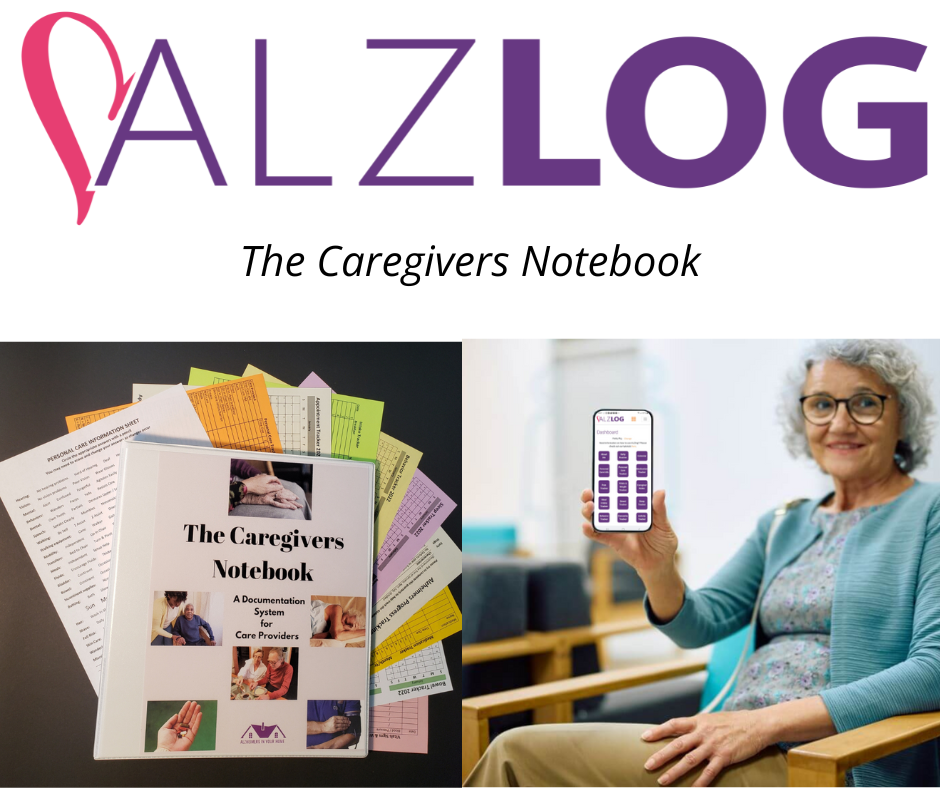What I Wish I Knew Before Starting Dementia Care
When I first became a nurse and began caring for individuals with dementia, I was unprepared for the challenges that would come with it. I had medical knowledge, but I didn’t fully understand the personal and emotional toll that dementia would take—on both my patients and myself. At first, I thought it was about managing symptoms and following protocols, but I soon learned that dementia caregiving requires so much more.
In the beginning, I would get frustrated when my patients couldn’t remember simple details or when they became confused and upset. I wanted to “fix” things, but I quickly realized that this wasn’t a disease that could be fixed. It was a disease that had to be understood and managed, with patience and compassion, at every stage. As I gained more experience and knowledge about dementia, I began to develop more patience with my patients, recognizing that their behaviors were not intentional but part of the disease itself.
However, when dementia hit my own family, I found myself facing a very different reality. As a nurse, I could go home at the end of my shift and leave the caregiving behind. But when it’s your own family, the responsibility doesn’t end—it’s constant. The emotional and physical toll is always present, and there’s no way to “clock out.” It was then that I truly understood the weight of caregiving and how deeply it impacts every aspect of your life.
In this blog, I’ll share the key lessons I’ve learned along the way—lessons that would have made my journey as a caregiver easier if I had known them sooner. I hope that by sharing these insights, you’ll feel more prepared and less overwhelmed as you care for your loved one with dementia.

1. The Emotional Rollercoaster
The Early Days
When dementia first enters the picture, it can be like stepping into an emotional whirlwind. You’re suddenly faced with the realities of memory loss, changes in behavior, and the emotional toll it takes on both you and your loved one. It’s not just about managing physical care; it’s about navigating the deep emotional undercurrents that come with it.
The Reality of Caregiving
The emotional side of caregiving often catches you off guard. You might feel frustrated, sad, or even guilty at times. At first, it’s difficult to accept that things are going to change, and those emotions can overwhelm you. You might find yourself asking, “Why is this happening?” or “Why is my loved one acting this way?”
The Importance of Self-Compassion
One of the hardest lessons I learned was the importance of self-compassion. It’s easy to feel guilty when you get upset or feel like you’re not doing enough, but this is part of the journey. You are doing your best, and that’s all anyone can ask for. Allow yourself moments of grace—caregiving isn’t a race, and there’s no need to be perfect.

2. Understanding Dementia: The Key to Patience
One of the most valuable things I learned was the importance of truly understanding dementia. The more I understood about the disease, the more patience I developed. Dementia isn’t just memory loss—it affects everything from reasoning and perception to behavior and mood. Your loved one is not acting out of defiance or being difficult on purpose; their brain is changing in ways they often can’t control.
That understanding was the turning point in my journey. Once I accepted that their behavior was a result of the disease—not their intentions—it became easier to respond with patience and compassion rather than frustration. It wasn’t always easy, and there were still tough days, but the more I educated myself, the better I could care for them.
If you’re finding it difficult to adjust your mindset, it might be time to learn more about dementia. Understanding the stages of dementia and how it affects behavior is essential for building the patience you need as a caregiver. This is where my Understanding-Dementia course can help. It’s designed to give you the knowledge you need to better understand how dementia progresses and how you can adjust your caregiving approach to meet the changing needs of your loved one.
In the course, I’ll guide you through:
- How dementia impacts the brain and behavior at different stages
- How to develop patience by adjusting your expectations and response
- How to stay emotionally balanced even during challenging moments
- How to manage caregiving tasks without feeling overwhelmed
Understanding the disease is the first step toward developing the patience and resilience that will make you a more effective caregiver.
Real-Life Example
There were countless times when my loved one couldn’t remember the simplest things—like where they left their glasses or what they had for breakfast. At first, I’d get frustrated, thinking they were being forgetful or stubborn. I would try to correct them, and when they didn’t remember, I’d feel defeated. But as time went on, I learned to respond with patience, reminding myself that their mind was changing, not them as a person. The more I learned about dementia, the more I realized that these moments weren’t about me being right—they were about understanding their reality and meeting them in it.
For example, I remember a day when my loved one asked the same question five times within an hour. Instead of getting frustrated, I simply answered with kindness, just as I would if they hadn’t asked before. I learned to see the situation not as repetitive but as part of the journey. This shift in perspective made all the difference in how I reacted, and it brought a sense of calm to both of us.
Practical Tips for Building Patience
Here are a few tips that helped me build patience, especially during challenging moments:
- Take breaks: It’s easy to get caught up in caregiving and feel like you have to do everything yourself. But remember, it’s okay to step away when things get overwhelming. Whether it’s a quick walk, a cup of tea, or just five minutes of silence, taking time for yourself will help you reset and approach your loved one’s needs with a clear mind.
- Set realistic expectations: Don’t expect things to go as smoothly as they used to. Dementia changes everything, and it’s important to let go of perfection. It’s okay if things don’t always work out. You are doing your best, and that’s enough.
- Seek support: Caregiving can be lonely, but you don’t have to do it alone. Find support groups or other caregivers who can share their experiences and offer advice. Connecting with others who understand what you’re going through can help you feel less isolated and more equipped to handle the ups and downs of caregiving.
- By gaining a deeper understanding of dementia and developing the patience to care for your loved one with compassion, you’ll be better equipped to navigate the complexities of the disease. If you’re ready to dive deeper into learning how to approach dementia caregiving with more patience, I encourage you to explore my Understanding Dementia course. It’s an investment in both your caregiving skills and your own peace of mind.

3. How Important Routine and Structure Are
The Benefits of Routine
One thing that became clear over time was the importance of establishing a consistent routine. A set routine can reduce anxiety and confusion for those with dementia. It helps them feel secure and grounded, even when other things feel uncertain.
Real-Life Example
I noticed that when I stuck to a daily routine for my loved one—such as having meals at the same time, engaging in a familiar activity after lunch, and setting bedtime rituals—their anxiety decreased. This structure helped them navigate their day with less stress, which made my caregiving role easier too.
Suggestions for Establishing Routine
Here are some simple ways to establish routine:
- Create a visual schedule: Post a chart with daily activities to keep things organized.
- Maintain regular meal times: Consistent mealtimes help with digestion and mental clarity.
- Stick to familiar activities: Try to include activities they’ve enjoyed in the past, like reading, walking, or listening to music.
For more tips on creating a structured routine that helps both you and your loved one, I encourage you to check out my blog, From Chaos to Calm: How to Use Routine in Dementia Care, where I explain how routines can transform your caregiving experience and bring peace to your daily life.
4. How to Track Symptoms and Progress
Understanding Disease Progression
Dementia doesn’t happen all at once—it’s a gradual progression. One of the most helpful things I learned was the importance of tracking symptoms. By keeping a close eye on my loved one’s behaviors, I was able to spot changes earlier, which helped in adjusting care.
Tracking Tools
One of the best tools I’ve used is the Alzlog app. This tool allows me to track symptoms, behaviors, and changes, making it easier to communicate with doctors and adjust care plans when needed. Using this kind of tool can be a lifesaver, especially when you’re juggling multiple care responsibilities.
Benefits of Tracking
Tracking symptoms can help:
- Spot early signs of decline and adjust care accordingly.
- Provide doctors with concrete data on your loved one’s progress.
- Help caregivers feel more in control and less overwhelmed.
If you want to learn more about how dementia progresses and how to track changes through each stage, I recommend checking out my blog, Navigating Dementia Stages: A Guide for Caregivers. It will help you understand the different stages of dementia and how to prepare for the changes that lie ahead.

5. The Financial Impact of Dementia Care
Unexpected Costs
Another lesson I wish I’d known earlier was how much dementia care could cost. From medical appointments to home modifications, caregiving can get expensive. It’s essential to start thinking about the financial aspect early on, even if you’re not ready to make drastic changes yet.
How to Plan Ahead
Financial planning is a crucial part of dementia caregiving. Explore options like long-term care insurance, Medicaid, or other assistance programs. It’s also a good idea to have legal and financial advisors help you navigate complex decisions.
For more detailed advice on managing the financial burden of dementia care, check out my blog, How to Navigate Dementia and Finances, where I break down the different financial challenges you might face and offer practical solutions to help you plan ahead.
Real-Life Example
There was a time when I wasn’t prepared for the financial strain of caregiving. The cost of in-home care and medical supplies quickly added up. Thankfully, I was able to find some assistance programs, but I wish I had started looking into those resources earlier.
6. The Importance of Asking for Help
The Caregiver Trap
At the beginning of my caregiving journey, I felt the need to do everything myself. I didn’t want to burden anyone else, but eventually, I realized that trying to do it all wasn’t sustainable. I hit a breaking point, and that’s when I realized it was okay to ask for help.
Why It’s Okay to Ask for Help
Asking for help is not a sign of weakness—it’s a sign of strength. Bringing others into the caregiving process can give you a much-needed break, help prevent burnout, and provide additional support for your loved one.
Tips for Asking for Help
Here are some tips for asking for help:
- Involve family members: Create a schedule for family to pitch in.
- Hire respite care: Professional caregivers can provide temporary relief.
- Join a support group: Connecting with others can make you feel less isolated. You can find our private Facebook support group HERE.
If you’re unsure when to ask for help or how to navigate the process, I recommend checking out my blog, How to Recognize the Right Time for Dementia Caregiving Help, where I dive deeper into recognizing the signs that it’s time to seek additional support and how to make that transition as smooth as possible.
7. Navigating the Healthcare System
Doctor Visits and Diagnosis
I quickly realized that navigating the healthcare system wasn’t as easy as I’d hoped. There are numerous doctor visits, tests, and sometimes a lack of clarity about what’s happening with your loved one. It’s important to advocate for their needs and ensure that all concerns are addressed.
Building a Care Team
A great caregiver team is essential. In addition to doctors, you’ll need therapists, social workers, and maybe even a support group. Building a team of people who can help provide the best care for your loved one makes all the difference.
Managing Medications & Behaviors
Tracking medications is key. My loved one had several prescriptions, and keeping track of when and how to administer them was a challenge for helpers. Using tools like the Alzlog app for medication management and tracking behavior-related changes helped me stay on top of things.
For more detailed advice on managing common dementia behaviors and understanding the signs to watch for, I recommend reading my blog, Top 10 Dementia Behaviors Every Caregiver Should Know About. It provides insights into recognizing and handling behaviors that can be challenging for both caregivers and loved ones.
Additionally, for tips on navigating the healthcare system and managing the medical side of dementia caregiving, check out my blog, How to Navigate Healthcare as a Dementia Caregiver. It offers practical advice on working with healthcare providers, understanding diagnoses, and managing the complexities of dementia care.

8. Taking Care of Yourself
The Caregiver’s Health
Caring for someone with dementia can be physically and emotionally draining. As a caregiver, it’s easy to put your needs on the backburner. But it’s crucial to take care of yourself in order to continue providing the best care for your loved one.
Self-Care Tips
Here are some simple ways to prioritize self-care:
- Exercise: Regular physical activity can reduce stress and improve mood.
- Therapy: Speaking with a counselor can help you process the emotions that come with caregiving.
- Take Time for Yourself: Even if it’s just a 10-minute walk or reading a book, find moments for yourself throughout the day.
Real-Life Example
I remember feeling tired, emotionally drained, and grouchy. I realized I was getting burned out and finally took everyone’s advice to take a day off. It was scary at first, but I felt so much more refreshed afterward. Self-care isn’t selfish—it’s necessary.
For more on how to avoid burnout and take care of yourself while caregiving, I encourage you to read my blog on Understanding Dementia Caregiver Burnout. It covers common signs of burnout and provides tips on how to manage your own well-being during this demanding time.
Conclusion:
Caring for someone with dementia is an ongoing learning experience. There will always be challenges, but with the right tools, patience, and support, it becomes a little easier each day. I hope that by sharing what I wish I knew, I can help make your journey smoother. You’re not alone in this, and with each step, you’re doing an incredible job.
If you’re feeling overwhelmed, remember that support is available. Don’t hesitate to reach out to others who understand what you’re going through, whether it’s through support groups, family, or professional help.
Hi, I'm Larea, I am a Registered Nurse specializing in Dementia Care, with 30 years of experience supporting dementia patients and their families. Over the years, I have provided care in diverse settings, including homes, hospitals, nursing homes, assisted living facilities, and hospice. My passion is guiding caregivers, sharing my knowledge and experience to help them navigate the challenges of dementia care with confidence and compassion.











